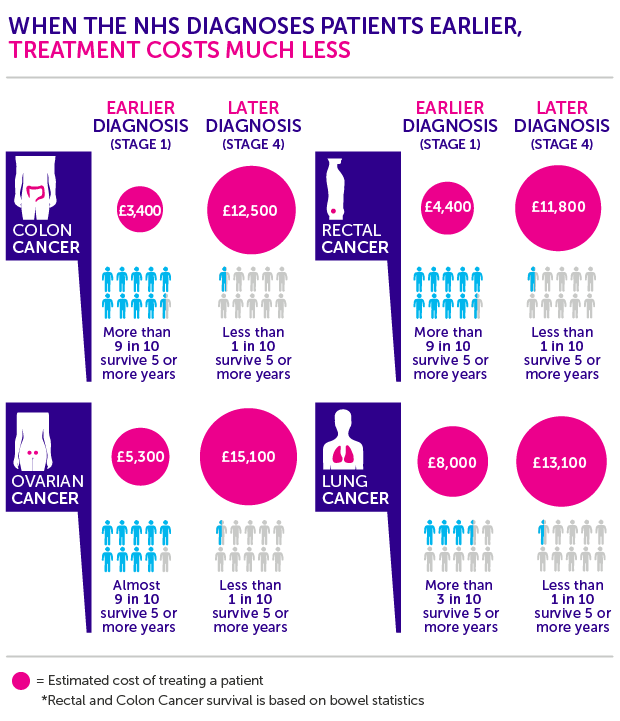Thinking about getting a body check? ‘Prevention is better than cure.’
What is a body check? What does an annual body check entail? Who needs a medical check? Why should you consider getting one? This post will walk you through these and other relevant questions. Let’s get to it!
You might not feel there is an imminent need to see your physician but authorities suggest an annual body check is more important than you might think.
The American Diabetes Association suggests that in 63% of cases, heart attacks (myocardial infarction) can be successfully avoided with proper preventive strategies.1 In fact, the College of Family Physicians of Canada found 94% of primary care physicians believe that annual body checks are crucial in promoting preventative healthcare and ensuring a quality physician-patient relationship.2
Who Needs a Body Check?
How often should you get a check up is a frequently asked question in different age groups. Recommendations will differ depending on your medical provider, age and medical condition, but ideally, all adults over the age of 18 should get checked once every 1-5 years.
For younger adults with no existing health problems, you may not need to get checked as often. But as you get older, it’s better to get checked more frequently. Researchers at the University of Michigan found that the performance and muscle strength of even master athletes and marathon runners decline after 40 years.3-4 Age takes a toll on heart function too. Studies have confirmed that heart and lung functions decrease with age.5-6 Therefore, it’s important to get a complete health check more regularly as you age.
|
For OT&P Medical Examinations |
Individuals with existing health problems may need more frequent health checks as well. For example, those with diabetes would see their doctor at least every six months to keep track of blood sugar control, cardiovascular health, vision, loss of sensations, and so on.
Make sure to consult with your doctor to find out what’s best for your situation!
What’s Included in a Body Check?
Here’s what you can expect during a comprehensive medical check-up:
- Initial Consultation: Doctors will usually start by getting to know you and your medical history. You can share any questions or concerns you have related to your health. You may also get questions about ongoing medical conditions, hereditary diseases, lifestyle, and so on.
- Vitals Checks: Your blood pressure, heart rate, respiratory rate, and temperature will be taken. This will provide important information about your state of health.
- Physical Examination: The most common examinations cover your heart (cardiovascular system), lungs (respiratory system), your muscle strength and reflexes (nervous system), tummy (abdominal system), skin, vision, and sensations. Depending on what your body check includes, you may also undergo a genital and/or breast examination.
- Medical Tests: Your doctor can order blood tests including full blood count, liver function tests, kidney function tests, cholesterol and lipid profile, diabetes check (blood sugar and HbA1C), hepatitis check, thyroid functions, urine check, and other checks based on your symptoms or problems. The doctor might also perform an ECG of your heart, a chest x-ray, and other imaging tests if needed.
- Follow-Up Meeting: The time for results to come back will vary but once they are available, you will be asked to come back to meet with a doctor. During this meeting, your doctor will go through all the findings with you and provide recommendations according to your medical condition.
If you would like to know more information about what to expect during your body check & how to prepare for one, download our free eBook and pre-screening checklist on our individual package pages!
OT&P has also introduced Hong Kong's most comprehensive health screening package - Platinum Medical which includes over 80 investigations, is highly personalised and identifies your key health indicators to determine what makes you the person you are, mentally and physically.
Why Get a Body Check?
Here are some benefits to getting a regular detailed health checkup.
-
Reduce healthcare expenditures
Healthcare can get expensive, especially for conditions that cannot be covered with insurance. A regular body check helps detect diseases either in their early stages or even before they surface.2,7-8 At this point, the possible treatment options cost less and can subsequently reduce the medical expenditures in the longer run.
A Japanese study found that individuals who received more frequent health checks had a significant reduction in their health checks on four years follow up.9 Additionally, Cancer Research UK found that early-stage treatment costs significantly less than a diagnosis at Stage 410 — as illustrated in the graphic below:
Source: Cancer Research UK -
Improve the success rate of treatment
Everybody wants a better chance of survival. Getting treated earlier on improves that significantly. The graphic from Cancer Research UK illustrates that individuals diagnosed with cancer earlier are much more likely to survive at least 5 years longer. And for many common diseases, the chances for successful treatment are much higher as well.
Here’s a list of conditions that can be diagnosed early with proper screening:
- Diabetes
- Colon cancer
- Breast cancer
- Cervical cancer
- Prostate cancer
- Colorectal cancer
- Thyroid issues like hyper and hypothyroidism
- Hepatitis and other liver issues
- Osteoporosis
- HIV
- Sexual issues
- Hormonal issues
- Vitamins and mineral deficiencies
- High blood pressure
- Heart issues (e.g. irregular heartbeat, narrowed blood vessels, and high cholesterol)
- Lung cancer and other lung-related issues
- Psychological health issues like depression
-
Make Better Lifestyle Choices
The secret to a long life isn’t only in your genes; it’s also in your habits. A regular body check paired with proper consultations will allow you to understand your physical condition better and record your medical history. This information can be provided to professionals so you can receive tailored lifestyle recommendations.
Knowing is the first step in taking control of your longevity and health. -
Update Your Vaccinations
A regular health check can help you remain up-to-date with a number of vaccines as well. These vaccines include2:
- Hepatitis vaccines
- Influenza vaccines
- Pertussis vaccines
- Vaccine to prevent cervical cancer
- Tetanus vaccines

Your health is precious and the best investment is the one you make into mainlining good health. You should be proactive in keeping your health in good shape and regular body checks can help you achieve that. These health checks can help you from a financial standpoint as well.
At OT&P, we have 4 different body check packages for patients to choose from. Depending on your age or health screening requirements, you can choose from our Standard, Comprehensive, Ultra Packages or an all-encompassing Platinum Medical Package.
References
1. Kahn R, et al. (2008). 'The impact of prevention on reducing the burden of cardiovascular disease'. National Institutes of Health. Aug 31. Available at:<https://pubmed.ncbi.nlm.nih.gov/18663233/>
2. Karl Iglar, et al.(2008).' Complete health checkup for adults.' National Institutes of Health. Available at:<https://www.ncbi.nlm.nih.gov/pmc/articles/PMC2329902/>
3. Faulkner JA, Larkin LM, Claflin DR, Brooks SV. (2007). 'Age-related changes in the structure and function of skeletal muscles'. National Institutes of Health. Available at:<https://pubmed.ncbi.nlm.nih.gov/17880359/>
4. Liao EY1, Wu XP, Deng XG et al. (2002). 'Age-related bone mineral density, accumulated bone loss rate and prevalence of osteoporosis at multiple skeletal sites in Chinese women'. National Institutes of Health. Aug 13. Available at:<https://pubmed.ncbi.nlm.nih.gov/12181627/>
5. Kampen WU, Tillmann B. (1998). 'Age-related changes in the articular cartilage of human sacroiliac joint.' National Institutes of Health. Available at:<https://pubmed.ncbi.nlm.nih.gov/9833689/>
6. Marcus Carlsson, Ruslana Andersson, Karin Markenroth Bloch. (2012). 'Cardiac output and cardiac index measured with cardiovascular magnetic resonance in healthy subjects, elite athletes and patients with congestive heart failure.' National Institutes of Health. July 28. Available at:<https://pubmed.ncbi.nlm.nih.gov/22839436/>
7. SG Sazlina. (2015). 'Health screening for older people—what are the current recommendations?'. National Institutes of Health. Available at:<https://www.ncbi.nlm.nih.gov/pmc/articles/PMC4567887/>
8. Richard Birtwhistle, et al. (2017). 'Periodic preventive health visits: a more appropriate approach to delivering preventive services'. National Institutes of Health. Available at:<https://www.ncbi.nlm.nih.gov/pmc/articles/PMC5685441/>
9. Suka M, et al. (2009). 'Effect of annual health checkups on medical expenditures in Japanese middle-aged workers'. National Institutes of Health. Available at:<https://pubmed.ncbi.nlm.nih.gov/19359897/>
10. (2014). 'Saving lives, averting costs'. Incisive Health for Cancer Research UK. Available at:<https://www.cancerresearchuk.org/sites/default/files/saving_lives_averting_costs.pdf>
 Central General Practice
Central General Practice
 Repulse Bay
Repulse Bay
 Clearwater Bay
Clearwater Bay
 Central Specialist Clinic
Central Specialist Clinic
 BodyWorX Clinic
BodyWorX Clinic
 MindWorX Clinic
MindWorX Clinic
 Partner Clinics
Partner Clinics
 Family Clinic
Family Clinic
 OT&P Annerley Midwives Clinic
OT&P Annerley Midwives Clinic
